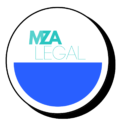It’s becoming cliché, but we are in uncertain times. So much has changed over the past two months. At times its hard to keep track of how these changes will impact us moving forward. Recently, Managing Attorney Zane Johnson teamed-up with The Community Health Training Alliance and Attorney Mary Chicorelli, Executive Director of Equal Access Legal Services, to provide some clarity through a free webinar. The webinar discussed the impact of COVID-19 on the legal rights of everyday Pennsylvanians. Topics included: unemployment compensation; expanded family and medical leave; the (lack of) laws protecting essential workers, stimulus checks; expanded public benefits; Philadelphia’s eviction moratorium, mortgage and student loan forbearance; issues effecting refugees and undocumented workers; jail and prison releases; and access to court and judicial services. A few highlights are below.
The CARES Act made three major changes to Unemployment Compensation.
First, all recipients will receive an additional $600 per week in benefits. This increase in benefits will run through July. Second, they’ve extended the amount of time you can receive benefits by an additional 13 weeks. Finally, self-employed individuals and private contractors are now eligible to receive benefits under the Pandemic Unemployment Assistance program, if they lost income due to COVID-19.
If you don’t file taxes, you may still be entitled to a stimulus check. But, you may need take additional action.
You should receive a stimulus check as long as you are (1) a US citizen or lawful permanent resident, (2) you cannot be claimed as a dependent on another person’s taxes, and (3) you made less than $99,000 last year. The government will use your most recent tax return to determine what you should receive. However, if you don’t usually file a tax return, you may need to provide additional information. The IRS has posted a tool on their website for non-filers to provide the necessary information to receive their check. If you don’t file tax returns, follow the link above to see if you need to provide additional info to receive your check.
If you’re having trouble making mortgage or student loan payments due to COVID-19, forbearance may be an option.
Mortgage and student loan payments are the largest monthly expense for many people. However, if you are having difficulty making these payments, forbearance may provide you with relief. Forbearance occurs when your loan servicer lets you pause loan payments for a limited period of time. During this time, you will not be placed in default for missing payments. Furthermore, your loans may stop gathering interest. Federal student loans have automatically been placed in forbearance until September 30th. For all other loans, contact your loan servicer to learn your options. Keep in mind, you will still have to make these payments up later. Ask your loan servicer how you will have to make those payments up before requesting forbearance.
UPDATE: Governor Wolf extends hold on evictions to July 10th due to COVID-19.
Since March 15th, there has been a pause on all eviction proceedings in Philadelphia. On May 7th, Governor Tom Wolf announced an executive order extending Pennsylvania’s statewide eviction moratorium until July 10th. This means that landlords across the state may not take any action to evict tenants until July. Any eviction taking place before that time is illegal. Renters still have to pay rent during this time. However, the hold on evictions should provide a little extra time to do so if you are struggling due to COVID-19. This order also places a hold on foreclosures until July 10th.
You can view the full webinar here. Reach out to M. Zane {+} Associates at (267) 475-7052 or hello@mza.legal if you have questions about how COVID-19 will effect your legal rights.
